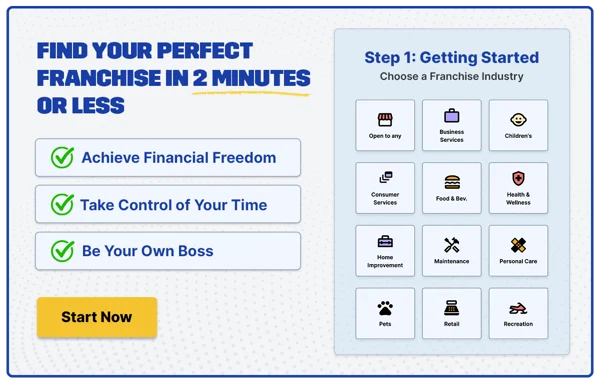Opinions expressed by Entrepreneur contributors are their own.
About eight years ago, I finally decided enough was enough — enough red tape, enough bureaucracy, enough of not feeling like my efforts aligned with my professional success. As much as I was ready for a change and knew what I’d be walking away from, I wasn’t sure what I was walking towards. After all, there is a big gulf between corporate frustration and finding the confidence to venture out into uncharted territory. I was confident in my abilities, but entrepreneurial imposter syndrome is real — Sound familiar?
Fortunately, I was able to find my way into a career path that provided a template for success while maintaining entrepreneurial independence: franchising. Today, as a former franchise owner and a current franchise consultant who has helped guide hundreds of individuals into franchising, I can confirm how the franchise model can alleviate entrepreneurial imposter syndrome and provide a fantastic path toward professional independence.
Let’s break down three imposter syndrome insecurity questions and explore how franchising offers a solution.
1. How do I know if I have the right skill set to be an entrepreneur?
Fortunately, when going through the discovery process, franchisors aren’t necessarily looking for a one-size-fits-all individual. While it’s important that you are adaptable and willing to learn and grow, franchises often complement your already-developed skill set.
First and foremost, it’s important to have an honest introspective look at your own experience to take stock of your skills. Most professionals have an area or two they consider to be “weak spots.” Is it finance? Sales? Engineering? Admin? Other? Realizing these holes exist in your professional repertoire can be unsettling for an aspiring entrepreneur. However, the franchising model helps to alleviate some of these concerns.
Let’s consider managerial aptitude. Whether you are confident in your ability to manage people or you absolutely hate managing people, there are franchise models that work for you. Brand selection is vital. In most cases, franchise owners don’t have a huge number of employees, but if you do want to avoid employee management, there are ways to do so.
Aversion to sales? B2C franchises that have recurring customer bases may be a good fit. (Consider a service brand like lawn care in which the franchisor has a larger call center, but your local franchise performs the services.)
Once you have selected a franchise brand that matches your skills, you are also immediately provided with an operations playbook — literally called “operations manual” from the franchisor. This manual provides step-by-step instructions for running every aspect of your business and a template for how the business can be successful.
Through careful brand selection and the information provided by a robust operations manual, franchising opens doors of possibilities that can match your skill set. Additionally, it may be worth working with a franchise consultant — a professional who helps candidates match their skill sets with the right business model.
2. Am I too young or too old to start my own business?
Ultimately, determining whether you are the “right” age to be a new business owner depends far more on you as an individual than on your actual age.
If you’re young, maybe you haven’t been as multifunctional because you just don’t have the experience of someone who has been in a corporate role for decades. Alternatively, maybe you’ve been doing the same job for so long that you’re concerned you’ll need support when shifting gears.
Luckily, franchising offers a solution here, too: franchising networks.
One of the most useful resources for franchise ownership is the network of current franchisees that exist within each brand. From day one as a new franchise owner, you will have access to other franchisees under the same brand that have experienced your exact situation. These peer groups become your trusted advisory board, sharing best practices and advice for every aspect of your business.
You may be attracted to business ownership so that you are in business for yourself, but when you join a franchise network, you’re not in business by yourself. These seasoned franchise owners are a better resource for you than the franchisor in many cases. You’ll be able to work with people who are in the same industry and offer the same service, but who aren’t competitors because you are in different geographic markets.
Related: It’s Never Too Late (or Early) to Become an Entrepreneur
3. Do I really have it in me to start from square one?
Professional fatigue is real. And I won’t lie to you, starting a business is not for the faint of heart.
No way around it, you’re going to have to work hard upfront. But it’s important to remember, when you are working for yourself, you’re operating from a different mindset than when you’re working for someone else. It may be hard to see that now, but if you’re truly ready for a change, you need to ask yourself:
Is a required level of discomfort now to make a change more difficult than the ongoing risk of losing your job, frustration in your role or dissatisfaction I currently feel in my career?
If you’re considering franchise ownership, you’re never truly starting from square one. The day you open your doors for business, your franchise is going to have professional branding and a recognizable market presence. When people interact with your brand, it inspires confidence to interact with a proven franchise model.
Related: Build Confidence and Get Over Imposter Syndrome by Focusing on 3 Areas
The post originally appeared on following source : Source link

